 Spring is just about here which brings warmer weather as well as severe weather. If you lose power, handling food can be tricky. If you don’t have a generator, then consider these options to prepare food without power from University of Minnesota Extension.
Spring is just about here which brings warmer weather as well as severe weather. If you lose power, handling food can be tricky. If you don’t have a generator, then consider these options to prepare food without power from University of Minnesota Extension.
Keep a food thermometer handy. Remember these three temperatures when cooking meats: 145° for steaks, roasts, chops; 160°F for ground meat; and 165°F for all poultry. If you have limited fuel for cooking, choose quick-cooking foods to reserve fuel.
Prepare one meal at a time so there are no leftovers. Don’t leave food sit at room temperature or in warm environments for more than two hours as this can lead to bacterial growth.
There are options to cook food. A fireplace is handy, but do not use charcoal in a fireplace as it can emit carbon monoxide. Get outdoors and use a camp stove, charcoal grill or gas grill.
Stock up on foods that do not require any cooking or refrigeration. Examples include peanut butter, canned meats, whole grain chips or crackers, fresh fruit, canned fruit, dried fruit, and many others. Don’t forget your pets! They also need nourishment in an emergency.
Handwashing is still important! Use bottled water and soap if running water is not available. Use disposable utensils and plates for easy clean up. Heat water on the outdoor grill to wash other items.
For more information on food safety during a power outage, see www.ksre.k-state.edu/foodsafety/topics/disaster.html
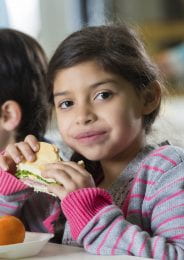
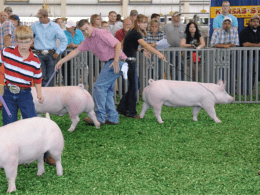

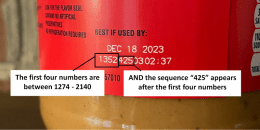
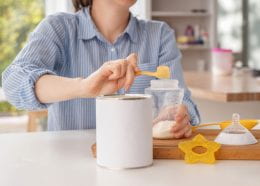
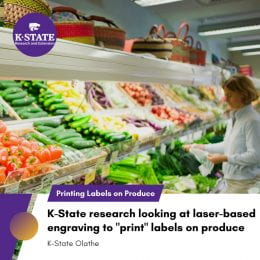 Those little stickers on fresh produce may soon be replaced with high tech labels that are “printed” directly on the produce. This research is being conducted at the K-State Olathe campus in the Postharvest Physiology and Food Safety lab.
Those little stickers on fresh produce may soon be replaced with high tech labels that are “printed” directly on the produce. This research is being conducted at the K-State Olathe campus in the Postharvest Physiology and Food Safety lab. Spring is just about here which brings warmer weather as well as severe weather. If you lose power, handling food can be tricky. If you don’t have a generator, then consider these options to prepare food without power from
Spring is just about here which brings warmer weather as well as severe weather. If you lose power, handling food can be tricky. If you don’t have a generator, then consider these options to prepare food without power from